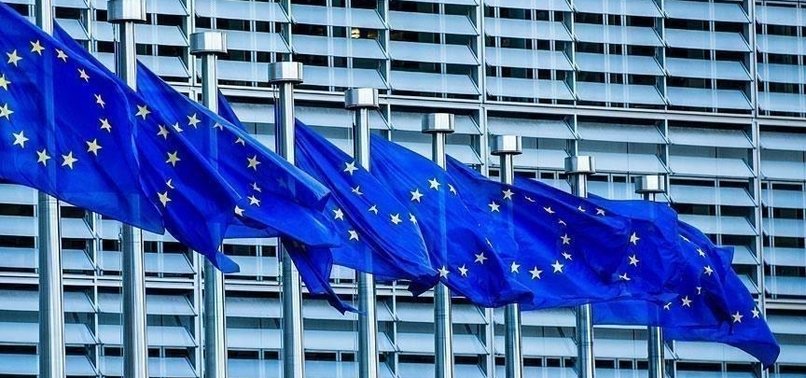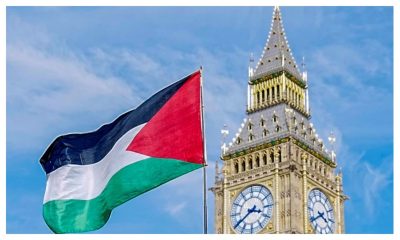World News
EU Proposes Sanctions on Israel Over Gaza, West Bank.

In a significant and unprecedented move, the European Union, through the European Commission, has presented a proposal to suspend certain trade agreements with Israel. The decision, which marks a notable shift in the bloc’s policy, is a direct response to Israel’s persistent military actions in Gaza, the deteriorating humanitarian situation, and the advancement of controversial settlement plans in the West Bank. The proposals, which also include targeted sanctions on Hamas, extremist Israeli ministers, and violent settlers, were announced by European Commission President Ursula von der Leyen in her State of the Union address, and they signal the EU’s growing frustration with the direction of the conflict and its profound impact on human rights and the prospects for peace.
The planned actions are a direct consequence of an internal review of Israel’s conduct, which concluded that the Israeli government had breached essential elements of the Euro-Mediterranean Agreement, the legal basis for the long-standing and robust relationship between the two entities. Article 2 of this agreement, which entered into force in 2000, explicitly states that relations shall be based on “respect for human rights and democratic principles.” The EU’s review found that Israel had violated this core principle, citing the blockade of humanitarian aid to Gaza, the massive scale of civilian casualties, and the continued expansion of settlements. As a result, the proposal seeks to suspend the preferential, duty-free access that Israeli imports currently enjoy to the EU market. If adopted, this measure would see Israeli goods subject to the same tariffs as those from any other country with whom the EU does not have a free trade agreement, a move that could affect a significant portion of Israel’s exports and cost the country millions of Euros in duties annually.
Beyond the trade measures, the EU has also put forward proposals for sanctions that target key individuals. The list includes two far-right Israeli ministers, Itamar Ben-Gvir and Bezalel Smotrich, who have been linked to the escalation of tensions in the West Bank. The proposed sanctions would freeze any European assets held by these individuals and ban them from traveling within the EU. Additionally, the proposal calls for sanctions against violent settlers in the West Bank and a reinforced package of listings against 10 members of the Hamas politburo. This targeted approach is seen by European officials as an “appropriate and proportionate” response designed to pressure the Israeli government to change its course, rather than to punish the Israeli people. The EU is also pausing its bilateral financial support to Israel for the years 2025 to 2027, with the exception of funding for civil society organizations and for Yad Vashem, the World Holocaust Remembrance Center, a move that underscores the strategic nature of the proposed sanctions.
A key factor driving the EU’s actions is the continued advancement of the controversial E1 settlement plan in the West Bank. The European Commission has denounced this plan, which seeks to connect Jerusalem with the Ma’ale Adumim settlement, as a step that would physically and geographically divide the West Bank, effectively making a future, viable Palestinian state impossible. At the signing of a recent agreement on this plan, Prime Minister Benjamin Netanyahu publicly reaffirmed Israel’s rejection of an independent Palestinian nation, a statement that directly conflicts with the EU’s long-held position. The EU, along with a broad coalition of other countries, remains an unwavering champion of the two-state solution, a framework which was recently endorsed by the New York Declaration of July 2025. This declaration, which called for a time-bound plan to end the conflict and for the recognition of Palestine as a sovereign state, was formally adopted by the United Nations General Assembly this month, signaling a new era of international consensus on the issue. .
The proposed sanctions, however, are not without their challenges. While some EU members, like Belgium, have publicly declared their support for the measures, others, most notably Germany and Hungary, have historically been reluctant to take such steps against Israel. The proposals for trade suspension require a qualified majority vote from EU member states, while the individual sanctions require unanimity, creating a potential barrier to their adoption. Meanwhile, Israeli Foreign Minister Gideon Saar has reacted to the news with strong words, describing the proposals as “morally and politically distorted” and warning that such pressure would not work. He has vowed that Israel will continue to fight “with the help of its friends in Europe” against any attempts to harm it. As the debate over the sanctions package begins, the international community will be watching closely to see if the EU can overcome its internal divisions and take a decisive stand in a conflict that has brought immense human suffering and continues to threaten regional stability.










